Internet
-
The New Digital Storytelling Series: Brett Gaylor
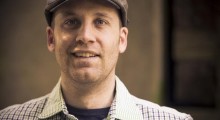
In the sixth part of Filmmaker‘s interview project with prominent figures from the world of transmedia, conducted through the MIT Open Documentary Lab, Brett Gaylor, Senior Director of Mozilla’s Webmaker initiative (including Mozilla PopcornMaker and Popcorn.js) answers our questions. Gaylor has previously been a member of the EyeSteelFilm documentary production company, the founder of Open Source Cinema and the web producer of Homeless Nation. For an introduction to this entire series, and links to all the installments so far, check out “Should Filmmakers Learn to Code,” by MIT Open Documentary Lab’s Sarah Wolozin. MIT Open Documentary Lab: How did you become a digital […]
by MIT Open Documentary Lab on Apr 11, 2013 -
The New Digital Storytelling Series: Mark Harris
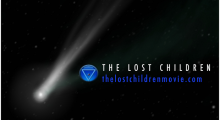
Mark Harris is a filmmaker and software architect. Mark writes software for gameplay, storytelling, and transmedia. Mark was a mentor at the first StoryCode StoryHack, and creative technologist on Lance Weiler’s Pandemic 1.0. Mark is also an alumnus of the IFP Narrative Lab. Mark’s transmedia project, The Lost Children, had its New York City premiere in Jan 2013 at Film Society of Lincoln Center, with a feature film and live immersive experience. In the Fall of 2012, Mark wrote his first immersive play for Epic Theater Ensemble, and in Spring 2013, Mark joins the hybrid studio/technology company Murmur. MIT Open Documentary Lab: How did you […]
by Scott Macaulay on Apr 4, 2013 -
The New Digital Storytelling Series: Kamal Sinclair
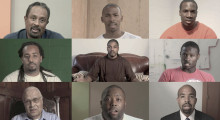
The Senior Manager at the Sundance Institute’s New Frontier Story Lab, Kamal Sinclair came to interactive via an unlikely, but, in many ways, appropriate route. While many in the interactive and new media fields hail from technology and filmmaking, Sinclair began her career in a medium where she received direct feedback from audience members every night — the theater. A trained dancer, choreographer and actress, Sinclair joined the Off-Broadway production STOMP at only 18, spending the next six years on their stages. In the below interview, Sinclair describes how she went from nightly performing to Sundance, a journey that also […]
by MIT Open Documentary Lab on Mar 28, 2013 -
The New Digital Storytelling Series: Hugues Sweeney
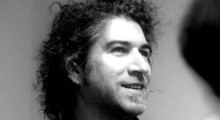
In the third part of Filmmaker‘s interview project with prominent figures from the world of transmedia, conducted through the MIT Open Documentary Lab, the executive producer of interactive production at the National Film Board of Canada, Hugues Sweeney, answers our questions. For an introduction to this entire series, check out “Should Filmmakers Learn to Code,” by MIT Open Documentary Lab’s Sarah Wolozin. MIT Open Documentary Lab: How do you see people making the transition to digital interactive storytelling? Sweeney: If you look at the music industry at the end of the 90s and the begin of 2000s, the smaller the labels/bands/publishers were, the faster they […]
by MIT Open Documentary Lab on Mar 21, 2013 -
The New Digital Storytelling Series: Elaine McMillion
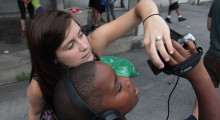
Last week, Filmmaker and the MIT Open Documentary Lab kicked off their collaborative series of interviews with digital storytellers with a conversation with Zeega. (For an introduction to this entire series, read “Should Filmmakers Learn to Code,” by MIT Open Documentary Lab’s Sarah Wolozin.) In the second part in this series, Elaine McMillion talks about her work, mainly focusing on her interactive documentary Hollow, a “hybrid community participatory project and interactive documentary” that uses HTML5 to depict a West Virginia community via video, photography, soundscapes and interactive data. From her website, McMillion describes herself thusly: Elaine McMillion is a documentary storyteller […]
by MIT Open Documentary Lab on Mar 14, 2013 -
The New Digital Storytelling Series: Zeega
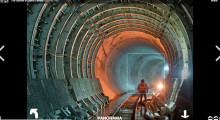
The first our series of interviews with digital storytellers, realized in collaboration with Filmmaker, here are the team behind the interactive storytelling platform Zeega. From the group’s mission statement: Zeega is revolutionizing web publishing and interactive storytelling for a future beyond blogs. With Zeega, you can use any media in the cloud, transform the entire screen into your playground, and share your interactive creations with the world. We’re living in a unique moment. More media than ever is recorded and shared. But the web today is dominated by a few platforms – all stories start to feel the same, trapped […]
by MIT Open Documentary Lab on Mar 7, 2013 -
Should Filmmakers Learn to Code?
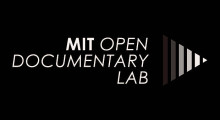
“Do filmmakers need to learn to code?” The inspiration for this blog series came from this question. Software is part of our everyday life; in some circles coding is seen as the new literacy and a means of empowerment. At MIT’s Comparative Media Studies, where the MIT Open Documentary Lab is housed, we are confronted with this question on a regular basis as humanists sitting in a land of hackers who marvel at the power and elegance of code. Fluent in many programming languages, some of them believe that we all should be. In an effort to make coding more […]
by Sarah Wolozin on Mar 7, 2013 -
Neutralizing Net Neutrality

Net neutrality may end this year. Verizon, AT&T and the American Legislative Exchange Council (ALEC) are spearheading a three-pronged attack against the open Internet and other open forms of digital communications. If they succeed, telecommunications will be further “deregulated” and, thus, further privatized and monopolized. As a consequence, telecom services will get more expensive, local requirements subordinated to the whims of huge corporate monopolies, competition and innovation will suffer and U.S. world ranking in terms of broadband speed – 15th today! – will further erode. One attack involves Verizon’s court challenge to the FCC’s very authority to regulate digital communications. […]
by David Rosen on Feb 4, 2013 -
Immersive Storytelling for The Lost Children Pt. 4
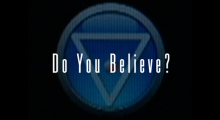
Film as Software The final installment of this series is about the actual screening of The Lost Children feature film at Film Society of Lincoln Center. In working out this screening, I am working with a concept called “Film as Software.” What exactly does this mean? To me it means film taking on some of the qualities of software. One of those qualities is the ability to react to user input in real time. That’s my take. But I asked Mike and Hal of Murmur to join in on the discussion. Murmur is the hybrid studio/technology company handling the interactive […]
by Mark Harris on Jan 28, 2013 -
Immersive Storytelling for The Lost Children Pt. 3

For as long as I can remember, I’ve been a lover of science. Astronomy especially. I grew up watching Carl Sagan’s Cosmos, and James Burke’s great series Connections. Even today, I am indebted to writers like Neil deGrasse Tyson, Stephen Hawking and Sean Carroll for writing about subjects like black holes and the nature of time in ways that a layman like me can understand. I think people like this are imperative to society because many of the subjects they study are critical to us as a race. Two of those subjects are NEOs (Near Earth Objects) and astrobiology. NEOs […]
by Mark Harris on Jan 22, 2013
